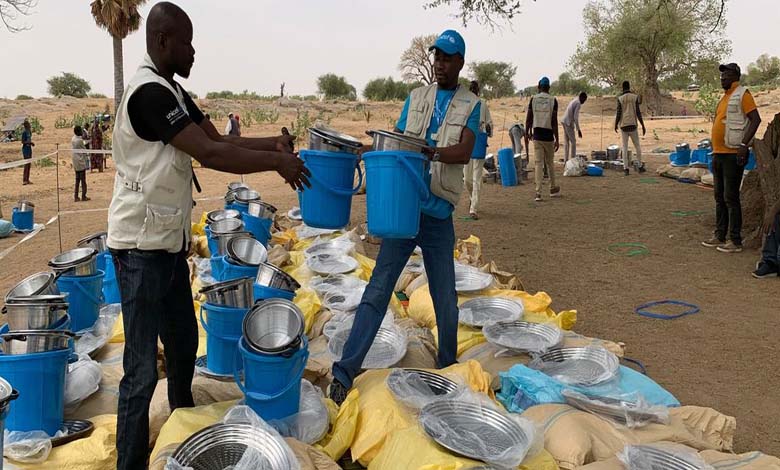Strengthening Humanitarian Access and Respect for Law: International Pressures to Resolve Sudan’s Crisis

International and UN pressures are mounting to alleviate the humanitarian crisis in Sudan, resulting from the ongoing conflict.
-
One Year of Sudanese War: Displacement, Fighting, Diseases, and Deepening Humanitarian Crisis
-
Do Sudan’s disturbances foreshadow a humanitarian crisis in East Africa?
The working group “ALPS” (Action for Lives and Peace in Sudan) continued its weekly virtual sessions on Saturday, focusing on expanding humanitarian access during emergencies and ensuring respect for international humanitarian law.
Last week, approximately 3,114 metric tons of supplies reached nearly 300,000 people in Darfur, supported by ALPS and the brave, tireless efforts of humanitarian actors on the ground. Members of the delegation continue engaging with the Sudanese Armed Forces (SAF) and the Rapid Support Forces (RSF) to achieve the urgent goals of expanding land access from Port Sudan through Shendi to Khartoum, as well as routes from Khartoum to Al-Obeid and Kosti, including through Sennar. ALPS delegates also call for the opening of additional border crossings, including the Aweil crossing with South Sudan.
-
Humanitarian crisis worsening… Half of Sudanese hospitals in Khartoum have stopped working
-
Sudanese Analyst Reveals: Pressure Must Be Applied to Ensure the Flow of Humanitarian Aid
In October last year, the Human Rights Council in Geneva passed a resolution establishing an independent international mission to investigate violations and crimes related to the fierce fighting between the SAF and RSF in Sudan. The mission released its first report on Friday, a 19-page document after investigations and interviews conducted between January and August 2024, with visits to Chad, Kenya, and Uganda, including direct testimonies from approximately 182 survivors, their families, and eyewitnesses, as well as extensive consultations with experts and civil society. The report recommended an arms embargo on both parties of the conflict and the deployment of a peacekeeping force to protect civilians.
-
Escalation of the Conflict in Sudan: The Role of Foreign Arms Transfers and Their Threat to Civilians
-
After 500 Days of War… A Major Health and Food Crisis Facing Sudan
Announcement of a Simplified Notification System
In this regard, ALPS members continue to pressure the Sudanese Armed Forces to announce a simplified notification system and implement it effectively, urging the RSF to fully comply, in order to simplify the bureaucratic barriers that result in Sudanese lives being lost daily. With more than 25 million people facing famine, this notification must suffice to allow the movement of humanitarian shipments across Sudan. Any delay will cost lives.
In a letter sent recently to “The Economist,” UAE Ambassador Lana Nusseibeh, Assistant Minister for Political Affairs, reaffirmed the UAE’s unwavering commitment to supporting global peace and stability through intensive diplomatic efforts and large-scale humanitarian initiatives, including its prominent role in Sudan.
-
The Flow of Weapons to the Sudanese Army from Foreign Sources… What Is Happening?
-
Humanitarian Aid on the Geneva Negotiation Table: UAE Leads Efforts to Assist Sudanese
ALPS delegates acknowledged the RSF’s new directive to all its forces concerning the protection of civilians, supporting their commitment to accountability, and will closely monitor its implementation. Several critical areas have been identified where both the RSF and the SAF must immediately de-escalate hostilities, including in El Fasher. This would ensure civilian protection and access to urgent relief, in line with commitments made in the Jeddah Declaration.
Delegates call on the international community to pressure both sides to achieve this goal. ALPS members reaffirm their shared commitment to working with other international partners to ease the suffering of the Sudanese people and achieve a ceasefire agreement. They also emphasize their commitment to continuing consultations with Sudanese women as part of the ALPS platform.












